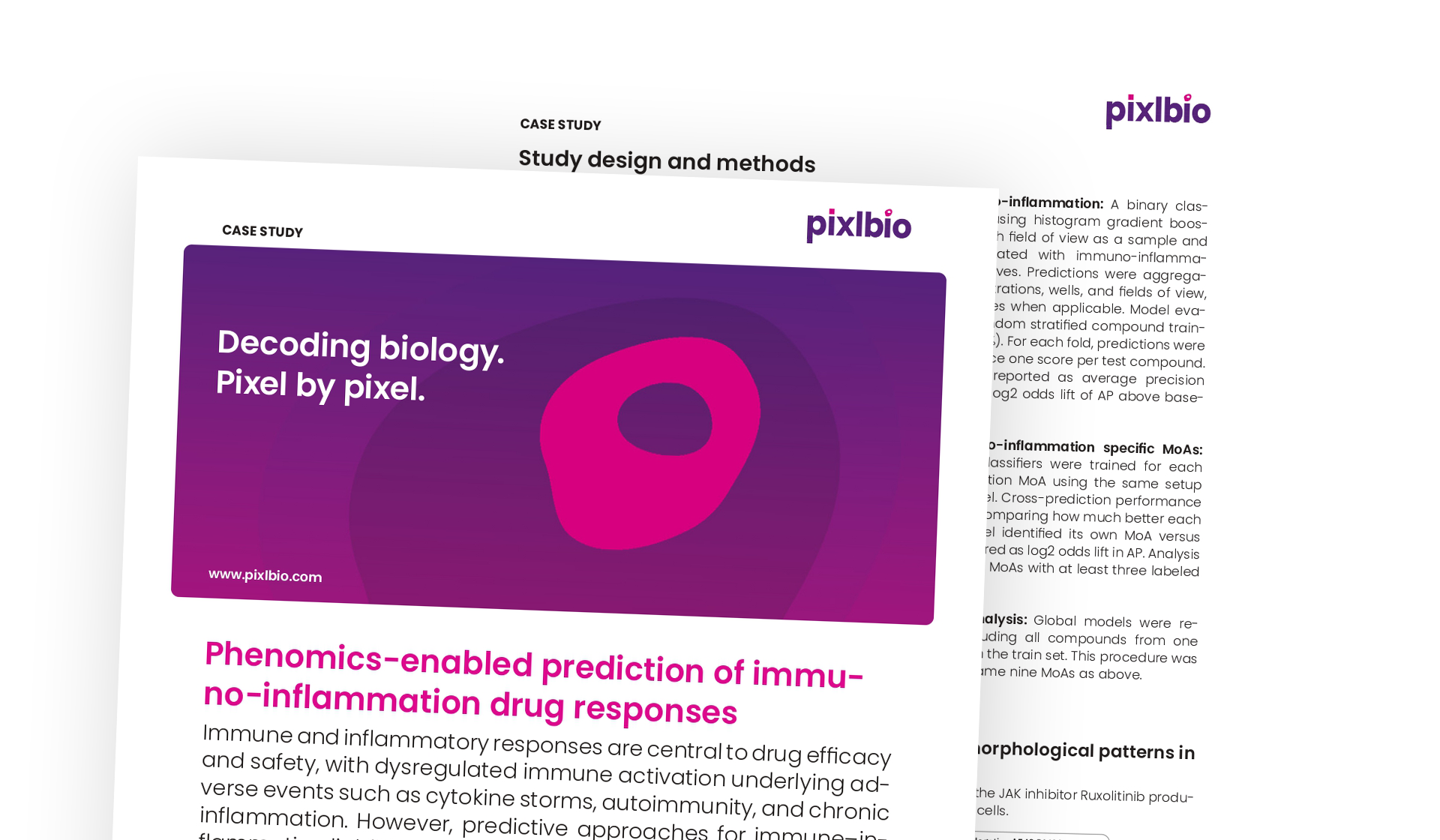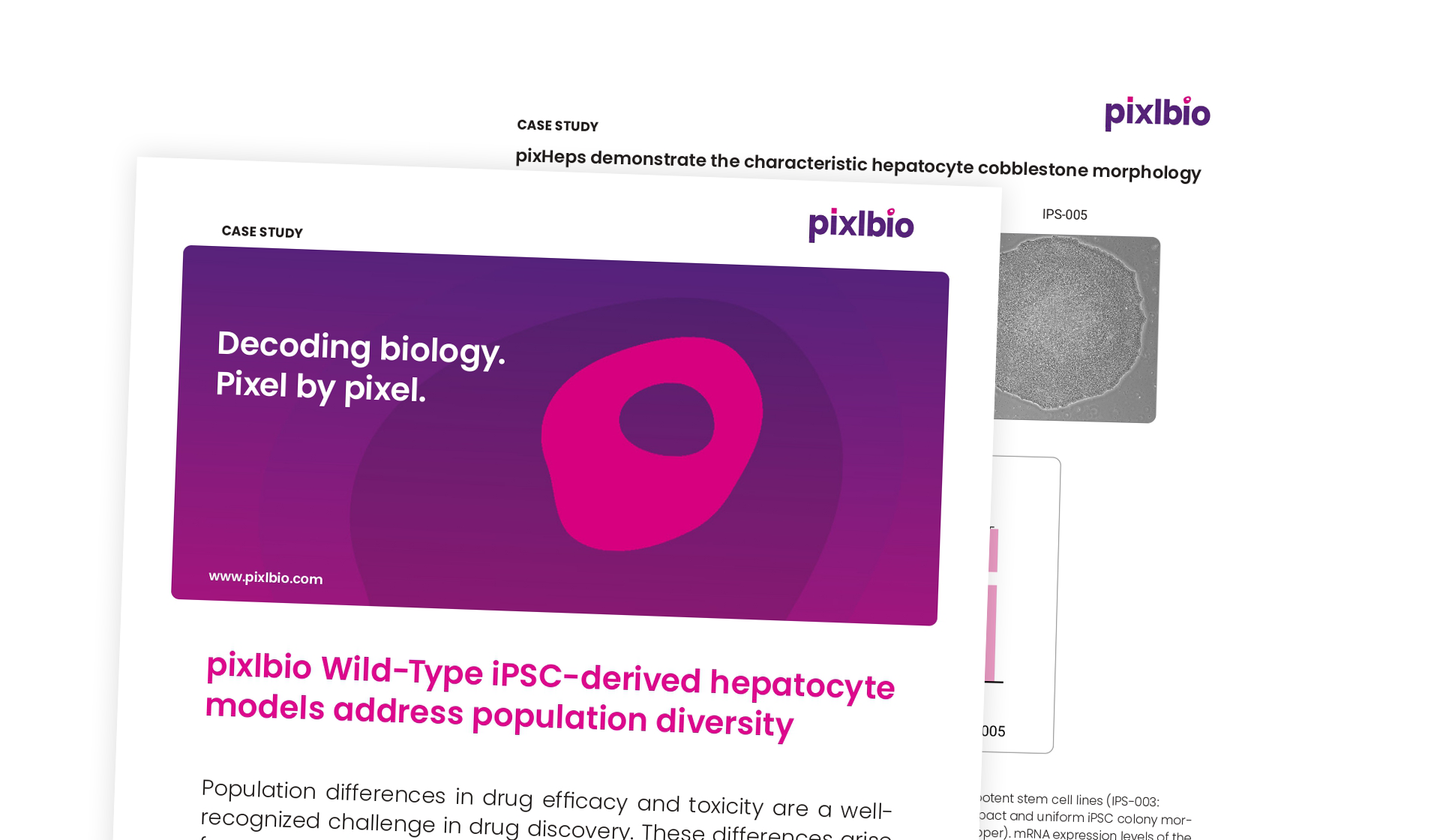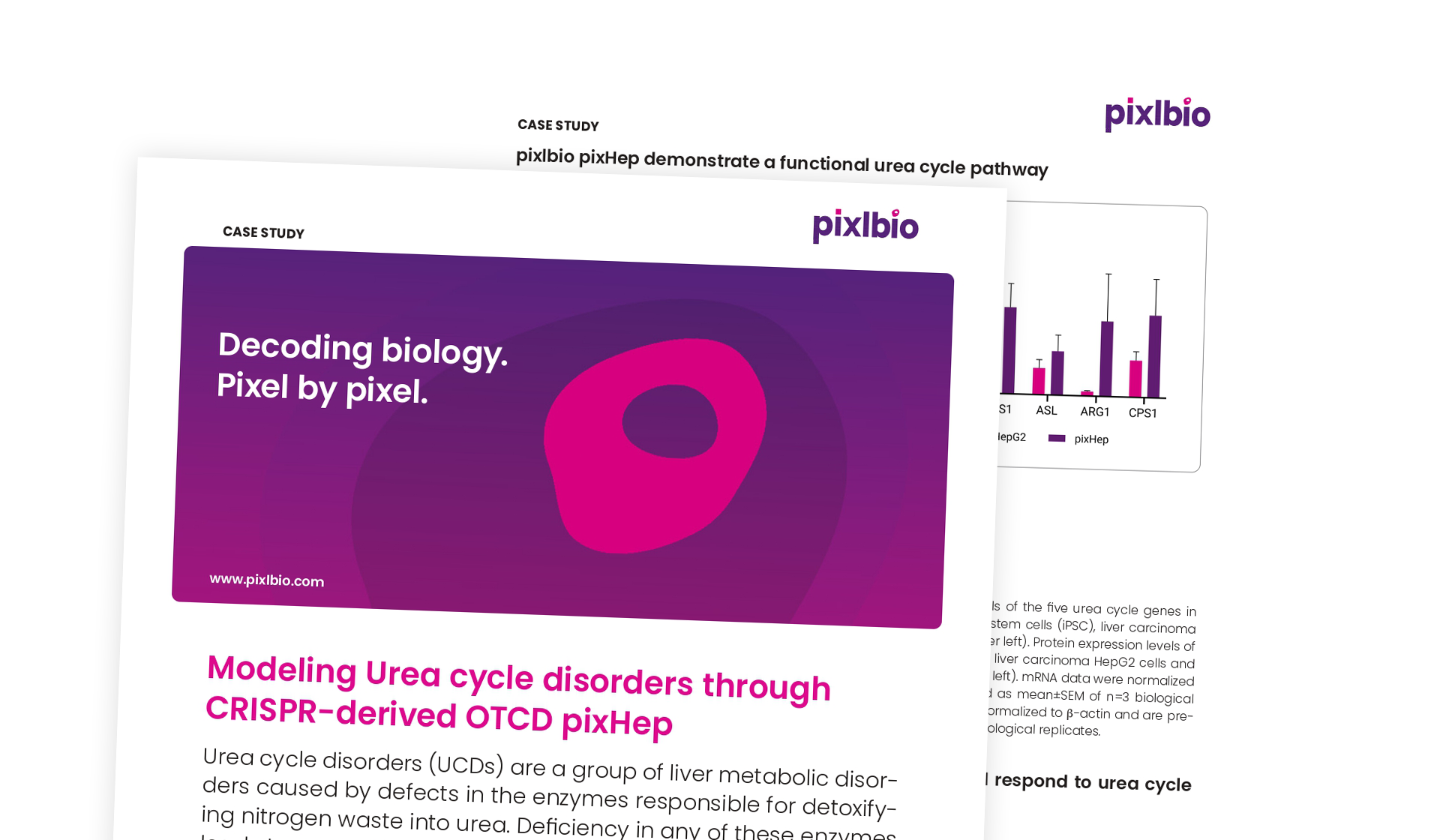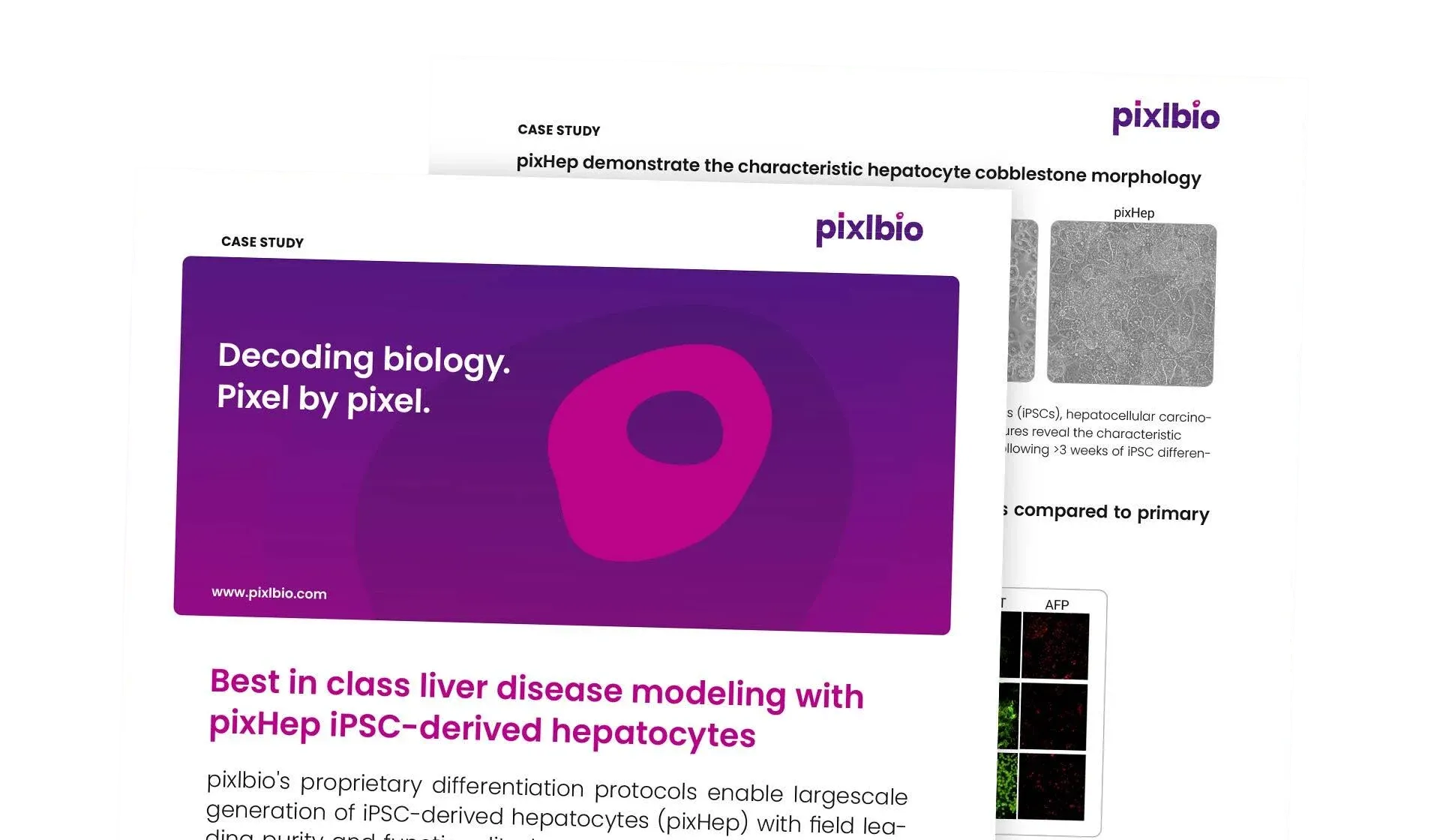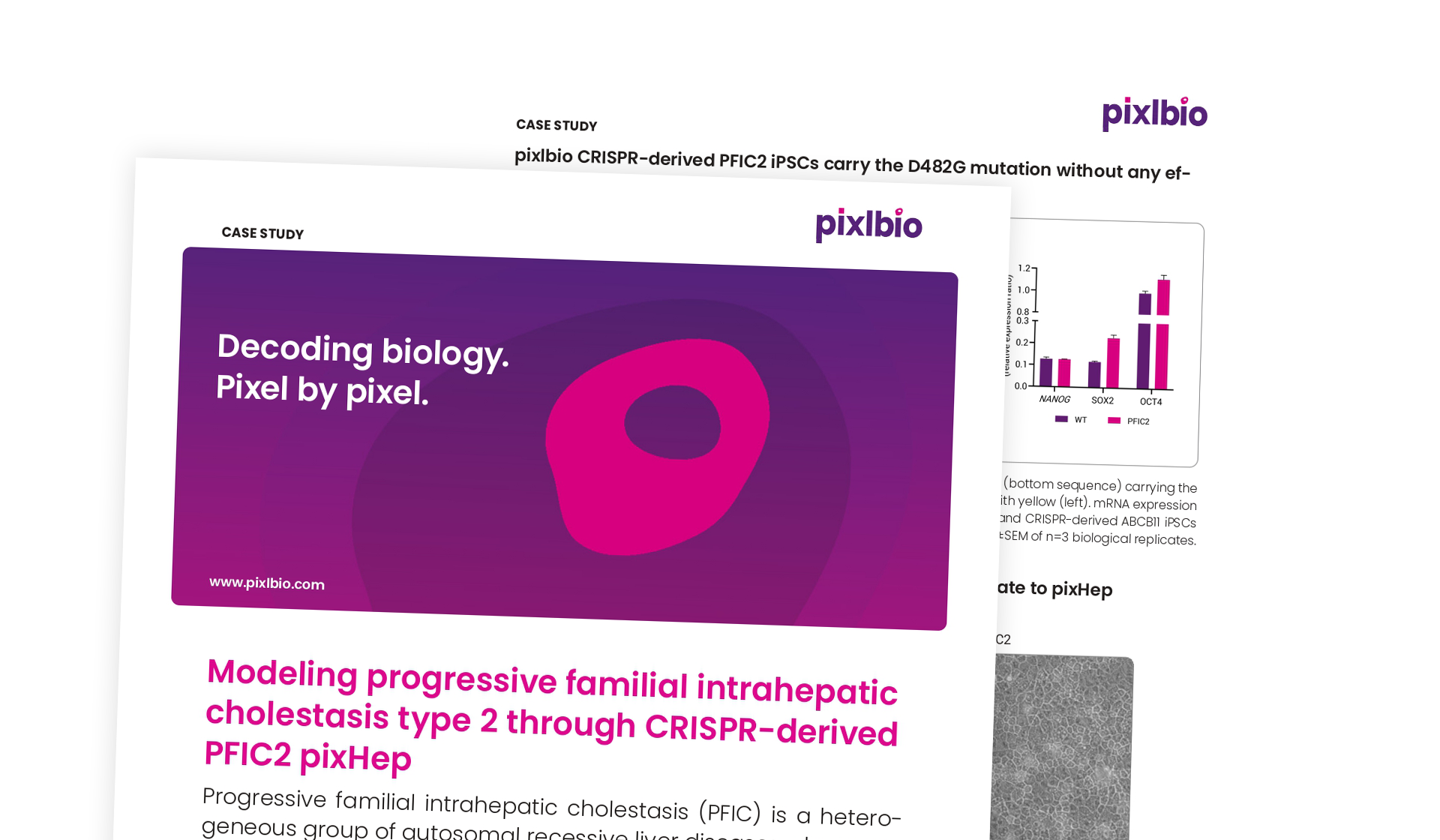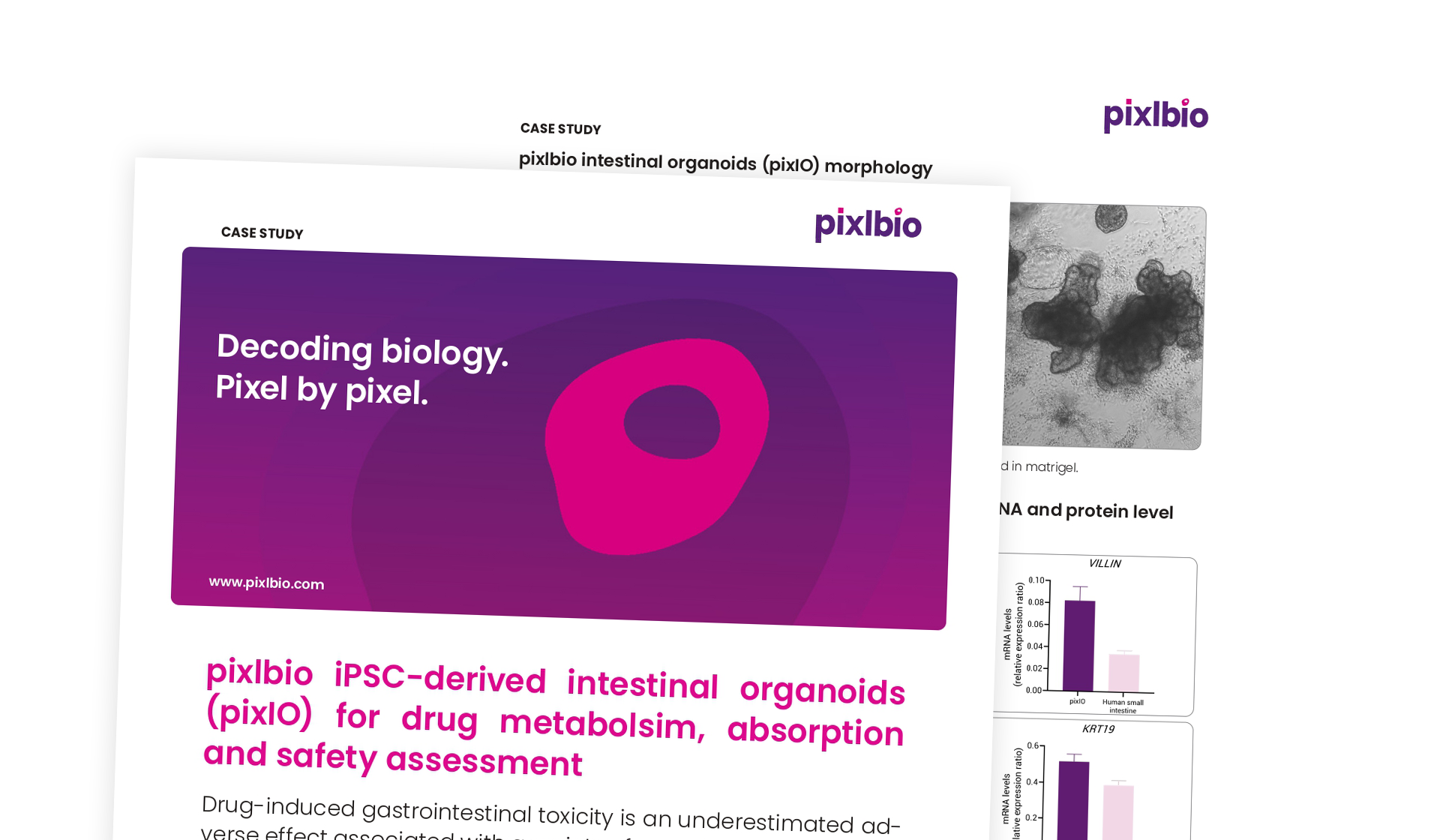MASH modeling through innovative co culture of iPSC-derived liver cell systems
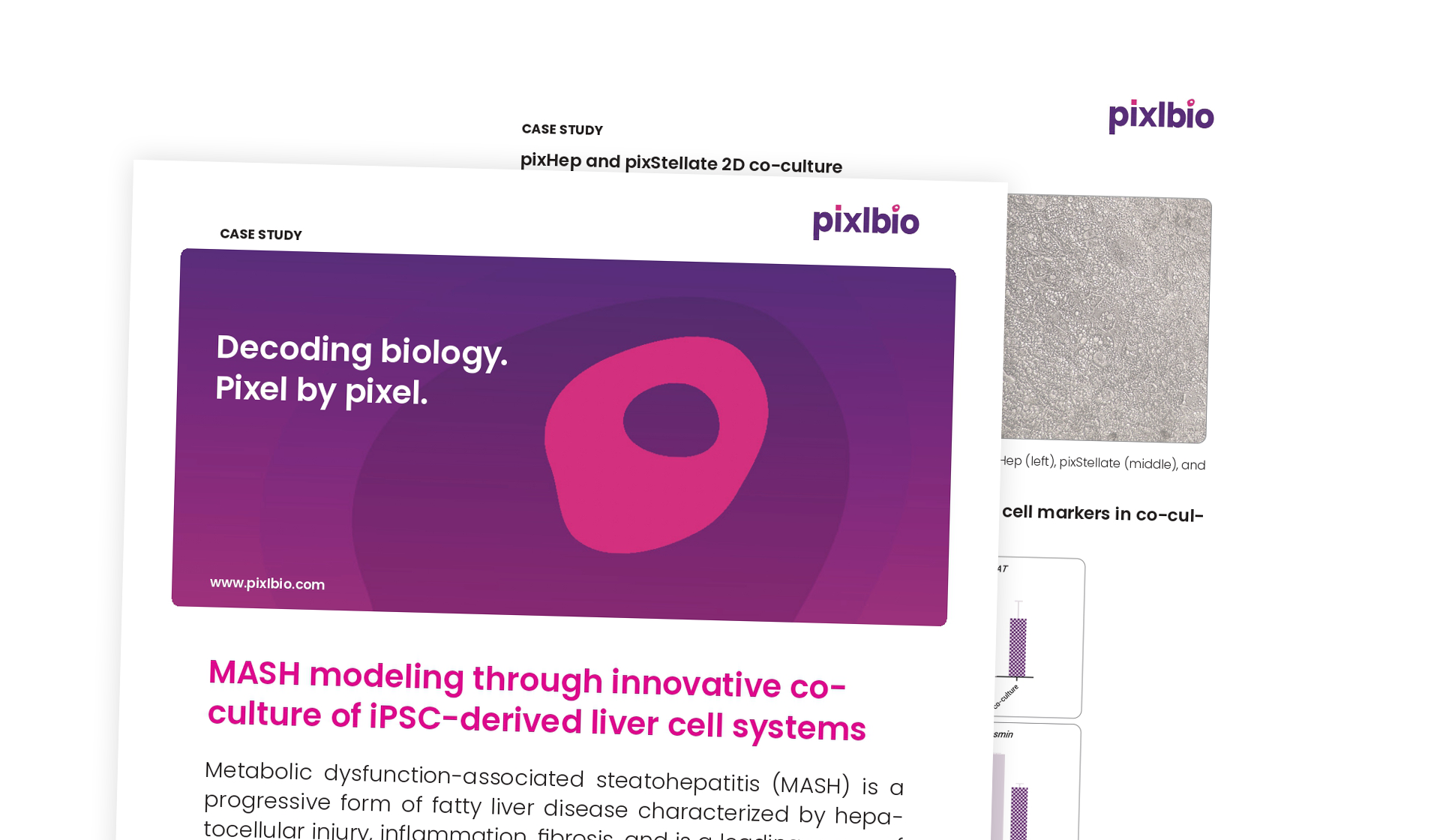

Metabolic dysfunction-associated steatohepatitis (MASH) is a progressive form of fatty liver disease characterized by hepatocellular injury, inflammation, fibrosis, and is a leading cause of cirrhosis, liver failure, and transplantation. Traditional preclinical models often fail to fully capture the complexity of human liver pathology, limiting drug development and safety assessment. At pixlbio we have advanced this field with our pixHep (iPSC-derived hepatocytes) and pixStellate (iPSC-derived stellate cells) technology, enabling co-culture systems that closely mimic the cellular and molecular features of MASH, including lipid accumulation, inflammatory signaling, and fibrogenesis. This innovative human cell-based model provides a highly translational platform for disease modeling, predictive drug-induced liver injury (DILI) assessment, and comprehensive toxicity profiling, accelerating the development of safer and more effective therapies.


